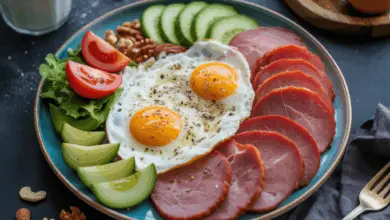How to Fall Asleep Quickly: Proven Tips for Better Sleep Tonight

Ever stared at the ceiling, watching minutes tick by while your mind races with endless thoughts? You’re not alone. Many people struggle to fall asleep quickly, lying awake night after night, desperate for rest. What if there was a way to calm your body and mind to fall asleep faster and wake feeling rejuvenated? In this article, we’ll explore expert-backed strategies to help you fall asleep quickly and improve your overall sleep quality—without relying on medication.
Why Falling Asleep Quickly Matters for Your Health
Sleep is more than just downtime. Quality sleep supports everything from immune function to cognitive performance and emotional well-being. Falling asleep quickly not only helps you get sufficient rest but reduces stress and sets the tone for a more productive tomorrow. When you consistently struggle to fall asleep, it can harm your physical fitness, mood, and energy levels throughout the day.
Practical Tips to Fall Asleep Quickly Tonight
1. Establish a Consistent Sleep Schedule
Going to bed and waking up at the same time every day helps regulate your body’s internal clock, known as the circadian rhythm. Even on weekends, aim to keep your sleep-wake times steady. This consistency trains your brain to expect sleep at a certain hour, making it easier to fall asleep quickly.
2. Create a Calming Pre-Sleep Routine
Wind down by engaging in relaxing activities 30-60 minutes before bedtime—think reading a book, gentle yoga stretches, or deep breathing exercises. Avoid screens and bright lights as they suppress melatonin production, a hormone that signals your body it’s time to sleep.
3. Practice Relaxing Fitness Movements
Physical activity during the day can improve your sleep quality, but timing is important. Avoid vigorous workouts close to bedtime. Instead, try gentle exercises like restorative yoga, light stretching, or Pilates in the evening. These activities promote muscle relaxation and calm your nervous system, helping you fall asleep faster.
4. Optimize Your Sleep Environment
Keep your bedroom cool, dark, and quiet. Invest in a comfortable mattress and pillows that support your preferred sleeping position. Blackout curtains, white noise machines, or earplugs can also minimize disruptions that prevent you from falling asleep quickly.
How Nutrition Impacts Your Ability to Fall Asleep Quickly
What you eat during the day—and before bed—plays a critical role in sleep quality. Avoid caffeine and heavy meals within 3-4 hours of bedtime. Instead, opt for sleep-supportive foods rich in magnesium, tryptophan, and melatonin precursors like:
- Almonds
- Bananas
- Cherries
- Oats
- Turkey
Staying hydrated is important, but limit liquids right before bed to minimize nighttime bathroom trips.
Real-World Examples: Small Changes That Helped Others Fall Asleep Quickly
Rachel, a busy graphic designer, shared how adding a 10-minute evening stretching routine and swapping phone time for reading helped her fall asleep within 15 minutes instead of hours. Mark, a fitness enthusiast, found that cutting his caffeine intake after 2 PM and practicing meditation at bedtime drastically reduced his tossing and turning. Simple, consistent tweaks like these can make all the difference.
Combining Fitness and Lifestyle for Restful Nights
If you’re ready to make a real impact on your sleep, consider integrating these long-term habits into your daily routine:
- Morning sunlight exposure: Natural light helps regulate your sleep-wake cycle.
- Regular aerobic exercise: Activities like walking, swimming, or cycling during the day can deepen sleep phases.
- Mindfulness and stress management: Journaling or mindfulness meditation reduces anxiety that might keep you awake.
Don’t forget, exploring our workout routines and wellness tips can provide additional tools and inspiration to support your sleep improvement journey.
Frequently Asked Questions About How to Fall Asleep Quickly
On average, it takes about 10-20 minutes to fall asleep. If you consistently take longer, it might indicate stress, poor sleep habits, or a sleep disorder.
Yes! Regular physical activity improves overall sleep quality and helps you fall asleep faster. Just avoid strenuous workouts 2-3 hours before bedtime.
Techniques like the 4-7-8 breathing method, progressive muscle relaxation, and guided imagery have been shown to calm the nervous system and promote quicker sleep onset.
Conclusion: Take Control and Fall Asleep Quickly Tonight
Falling asleep quickly isn’t just a matter of luck—it’s a skill you can develop with the right strategies. By combining a consistent sleep schedule, mindful fitness routines, better nutrition, and a sleep-friendly environment, you can finally enjoy restful nights and energized days. Ready to transform your sleep habits? Start with one small change tonight, like turning off screens an hour before bed or trying gentle stretches. Your body and mind will thank you.
For more expert advice on improving your sleep and overall wellness, explore our nutrition guides and keep up with regular fitness updates here. Sweet dreams!





